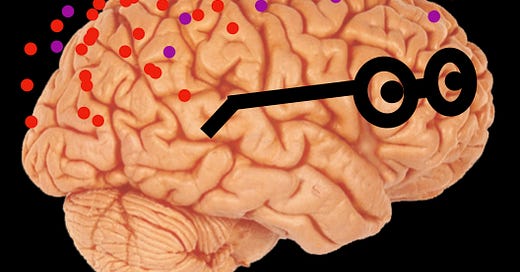What is controversial about the inner mammal?
If you wondered what happened to me on Psychology Today
Here is the post that got me into trouble at PsychologyToday.com. It may seem quite bland and uncontroversial to you. It did to me, because I’d spent years trying to avoid their censorship. So what’s going on? My work has always gotten a bad reaction from academics. My future posts will explain why I think this is so. That may sound “just academic,” but the therapy-industrial complex has enormous power over your life. First, here’s the post that provoked a list of 15 impossible-to-satisfy criticisms from the editor of PT. (I added those criticisms in the comments section- scroll to the earliest comment.)
100th Anniversary of the Discovery of Neurotransmitters!
It’s a good time to discover your own neurotransmitters.
100 years ago, a scientist discovered that neurons release chemicals with huge power over our bodies. This may not seem like a big deal because you don’t feel your neurotransmitters consciously. But that’s just the point– so much of your response to the world is not conscious because of neurotransmitters. When you understand their power, your conscious brain can help guide your chemical brain toward inner peace. So let’s look at the fascinating story of this Nobel-winning discovery.
A young German doctor named Otto Loewi decided to do medical research after watching patients die of tuberculosis and pneumonia in great numbers. There was no cure for these diseases at the time, so Loewi wanted to advance knowledge of the body. In 1921, he had an idea. He applied electricity to the vagus nerve of a frog heart, and when the heart slowed down, he took fluid from the heart and applied it to a second frog heart without a vagus nerve. The second heart slowed down! Something in the liquid must have done it. Dr. Otto figured out that nerves excrete substances that control our bodies. (The substance was acetylcholine in that case.)
Why should you care?
Sometimes you feel like you’re slowing down or speeding up and don’t know why. It’s frustrating because you didn’t consciously choose that response, and you don’t know how to control it. It seems to come out of nowhere. It’s useful to know more about your nervous system.
A frog’s nervous system makes careful decisions about when to release a neurotransmitter. It releases speed-up chemicals in moments when speeding up would promote its survival, and slow-down chemicals in moments when slowing down promotes survival. But how does it know?
It’s wired by genetic instructions. A frog is born with a complete nervous system, so it can act to meet its needs from birth. We humans are born with an incomplete nervous system. We build our neural pathways from lived experience. It takes a long time, but it allows us to wire in adaptations to our environment instead of being carbon copies of our ancestors.
Our nervous system builds without conscious intent because “neurons that fire together, wire together.” We are born with billions of neurons, but very few connections between them. The neurons you fire a lot develop into your nervous system.
Loewi spoke of “nerves” rather than neurons. This makes sense for his time because nerves are visible to the naked eye, while neurons are not. A nerve is a bundle of neurons wrapped in myelin. We have a lot of myelin when we’re young, so we easily wrap our frequently-activated neurons. We build big bundles with big power to conduct electricity. In adulthood we have little myelin, which is why rely on the nervous system we built in youth. You can make small changes, but it’s like trying to change a highway system without any paving material. This is why it’s useful to understand the neural highway system you have.
I was amazed to learn that amoeba have neurotransmitters like ours, even though they have no nerves or neurons at all. Their chemicals do the job just by floating. Nerves evolved to carry neurotransmitters to more specific locations to do more specific jobs. But that still begs the question of how an organism knows when to turn them on and off.
You are not just a slave to biology or a genetic blueprint. Your conscious verbal brain interfaces with your autonomic system in a way that’s not fully understood. You can be your own best researcher by observing the link between your thoughts and your positive or negative responses. You can build up your wiring for positive thoughts by connecting them to the survival circuits you already have.
As I read Loewi’s discussion of “nerves,” I was reminded of the old expression, “you get on my nerves.” This was a popular way to blame your internal neurotransmitters on external forces. You feel powerless when you do this. You are better off understanding your internal responses.
You can learn to notice correlations between your thoughts and your physical responses. Then you can steer your thoughts toward more positive responses. It’s hard to steer this brain we’ve inherited, alas. It’s the challenge that comes with the gift of life. My new workbook offers a simple step-by-step guide for doing this: 14 Days to Sustainable Happiness.






I welcome your thoughts.
PT's loss! Neuroscience IS complex, and those who write in jargon and obscurities are often just protecting their own position, or trying to make themselves look cleverer. It is a far higher, greater skill to make the complexities simple to understand. Nobody has time to get a degree in neuroscience in order to read an article. We all just want it served up on a way that we can understand and DO something with it (IE: YOUR way! 😊)